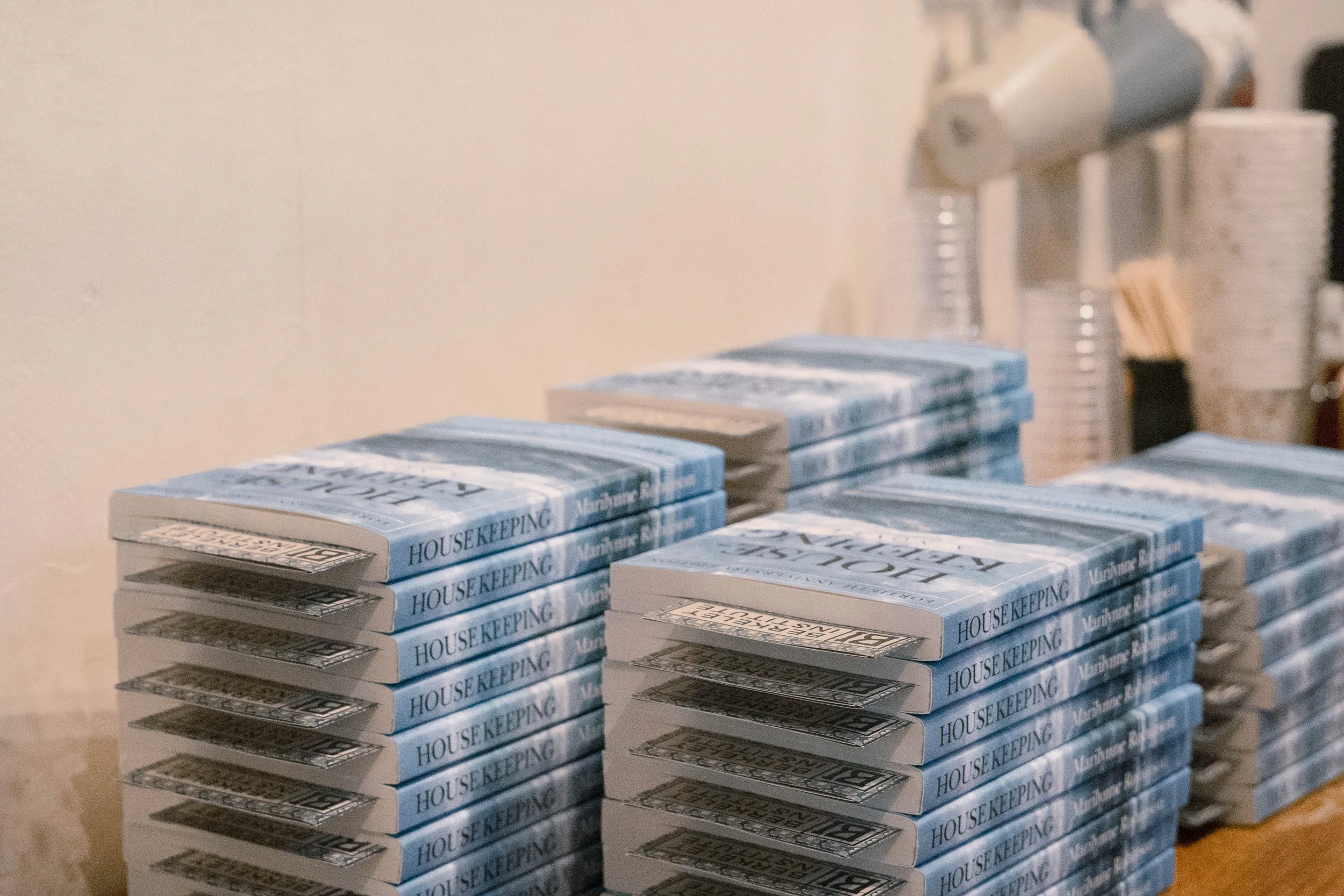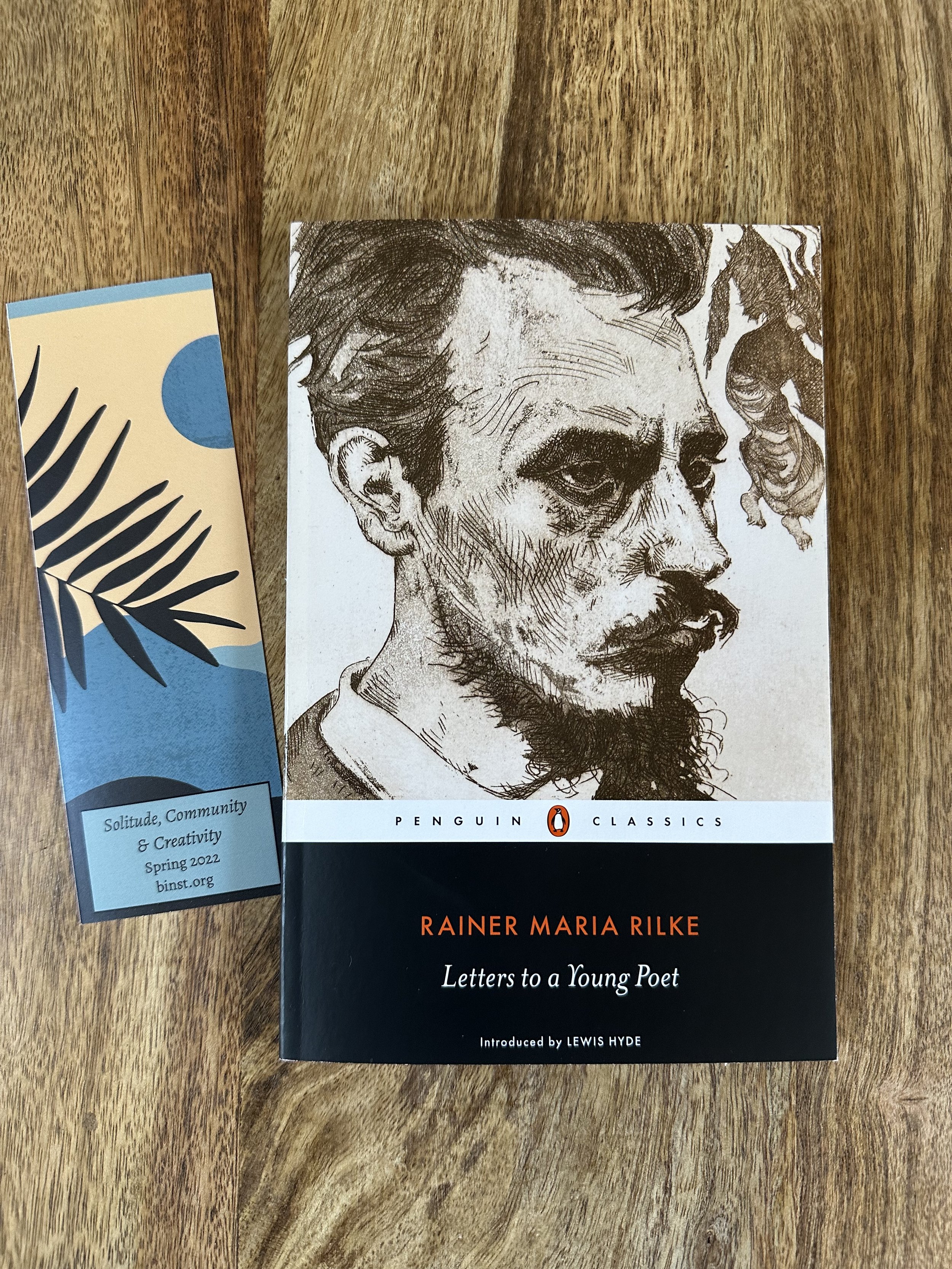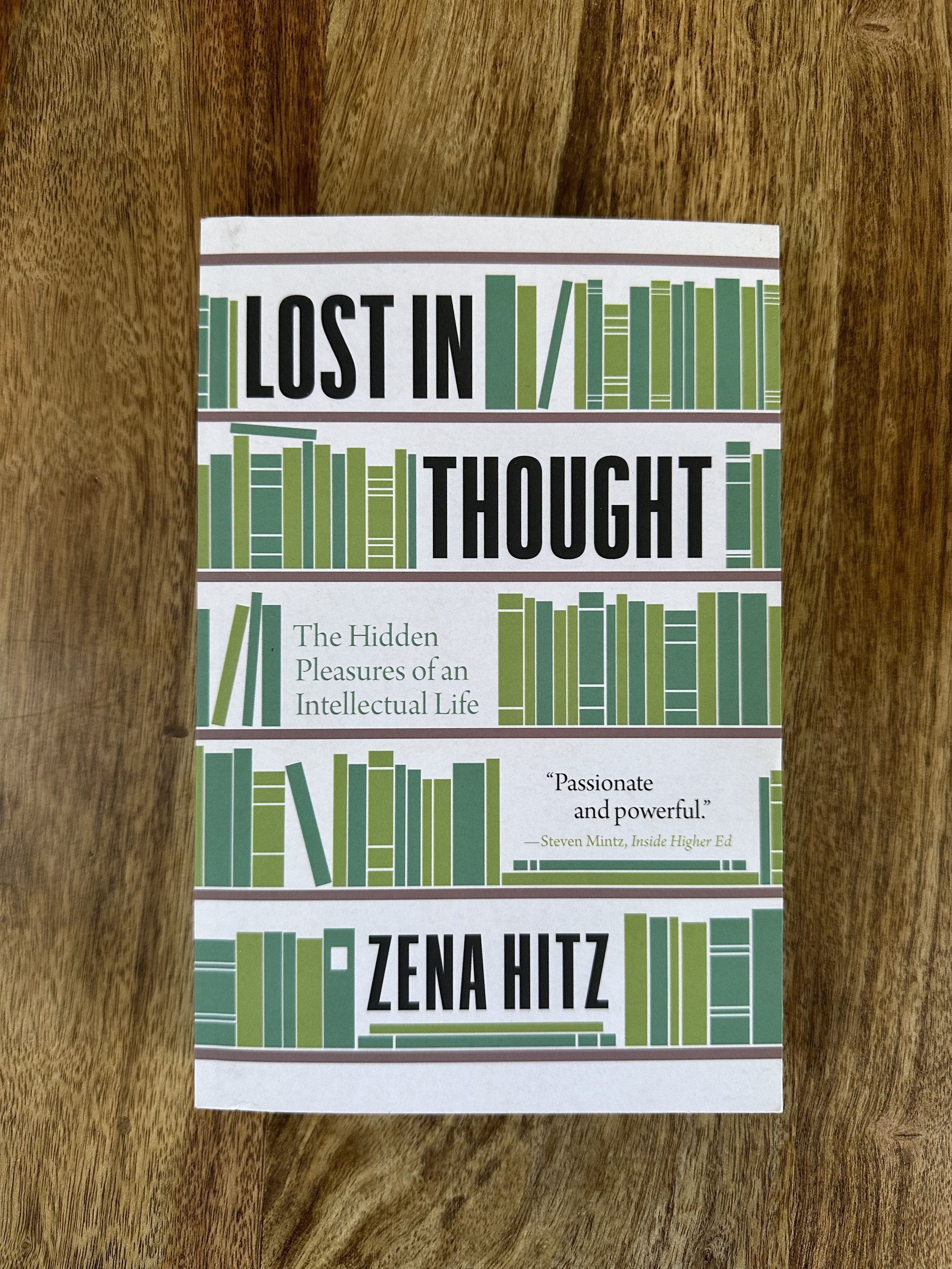OUR SEMESTER THEMES &
COMMUNITY READ
Our semester themes frame the core of our programming and anchor our community conversations. We are interested in questions that persist: we seek to take up new books revealing old ideas, and old books whose ideas strike us as profoundly new.
Spring 2026: The Moral Life
In conversation with Aesop’s Fables
Most of us assume that we want to live morally — to do good things rather than bad things. Yet there is much less agreement about what, exactly, makes a life moral. Is a life lived “morally” defined by adherence to shared rules, by the cultivation of discernment, or by actions taken in critical life moments?
The Berkeley Institute is devoting Spring 2026 programming to the theme of "The Moral Life" by reflecting on how individuals seek and receive guidance and moral formation, and how such formation unfolds over time. Throughout this semester, we will reflect not only on moral instruction in texts, but on how moral lives are shaped through relationships, everyday practices, and institutions, including the university.
In asking these questions, we take for granted that living morally matters for a flourishing life. What we do not take for granted is that moral formation lies squarely within the purview of the contemporary university. Historically, moral formation was a central aim of liberal education. Over time, however, critiques of moral education have gained force, and universities have increasingly oriented themselves toward other types of formation – professionalization above all. Yet the university may nonetheless, and often inevitably, function as a site of moral formation: a space where ways of knowing, valuing, and judging are shaped through pedagogy, institutional norms, and intellectual practices. What should we make of this kind of education, and how might it shape who we become, not only what we know?
This semester, we will engage one of the oldest surviving traditions of moral instruction in Western literature: the fable, and Aesop’s fables in particular. These short, often ambiguous stories have long been used to teach lessons about virtue, vice, and power. However, they are not straightforward. Rather than offering moral clarity, fables often invite interpretation, disagreements, and reflection, raising questions about how moral knowledge is produced, transmitted, and lived.
Fall 2025: Enchantment and Disenchantment
-
During the Fall 2025 semester, the Berkeley Institute explored how people understand the world (and themselves) as either “disenchanted” or re-enchanted. We examined the ways they seek meaning, whether through explanations that transcend the merely material, natural, and rational, or by rejecting such frameworks. In particular, we considered how enchantment and disenchantment shape the kind and quality of attention we give to the world. Although we live in an increasingly areligious culture, “enchanted” beliefs and ways of life continue to persist— or even flourish — in our secular and technologically driven age.
We asked: What insights might arise from questioning the enchantment-disenchantment dichotomy? What sensibilities must we cultivate within ourselves if we are to live meaningfully in a world often described as disenchanted? And how might a deeper sensitivity to meaning itself help us reimagine our relationship to the world, to one another, and to the tasks of thinking and living?
University education is often valued for teaching “critical thinking,” but other kinds of thinking are also necessary for good intellectual work and our ability to live well in the world with others. We asked the above questions with the awareness that different kinds of thinking are not discrete, boundaried or exclusive; in fact, modes of thinking overlap with or require each other. Different disciplinary norms shape how we understand what thinking itself is (e.g. thinking vs. cognition), as do different intellectual, philosophical and religious traditions. Hence, our questions and selections were meant to simply commence an exploration of what is required to think well; in our programming, we explored the specificities of individual traditions and formulations of thinking in all its diversity.
Finally, we asked these questions as contemporary technologies invite us to outsource certain kinds of thinking. What kinds of thinking cannot – or should not – be outsourced? What kinds of thinking are central, and perhaps undervalued features of human experience and flourishing lives?
Spring 2025: Varieties of Thinking
-
The Berkeley Institute is devoting the Spring 2025 semester to exploring “Varieties of Thinking” by reflecting on what is required of us to think well. We will discuss select categories of thinking — contemplative, reflexive, imaginative, critical, speculative — and ask: What is the value of different types of thinking? How are different kinds of thinking practiced and accounted for? And how can thinking be an act — that is, something we deliberately undertake?
University education is often valued for teaching “critical thinking,” but other kinds of thinking are also necessary for good intellectual work and our ability to live well in the world with others. We ask the above questions with the awareness that different kinds of thinking are not discrete, boundaried or exclusive; in fact, modes of thinking overlap with or require each other. Different disciplinary norms shape how we understand what thinking itself is (e.g. thinking vs. cognition), as do different intellectual, philosophical and religious traditions. Hence, our questions and selections are meant to simply commence an exploration of what is required to think well; in our programming, we’ll explore the specificities of individual traditions and formulations of thinking in all its diversity.
Finally, we ask these questions as contemporary technologies invite us to outsource certain kinds of thinking. What kinds of thinking cannot – or should not – be outsourced? What kinds of thinking are central, and perhaps undervalued features of human experience and flourishing lives?
Fall 2024: Religious Life and the University
-
The Berkeley Institute devoted the 2024 Fall Semester to thinking about “Religious Life and the University”: If we consider the religious life in broad terms – as a commitment to practices within a faith tradition — what does it have to offer the university? What does the university have to offer it? Is it possible to access the religious life through university education? Are the perceived inconveniences of the religious life beneficial or detrimental to the aims of education? How can the religious life and the intellectual life enrich each other? These questions often inspire programming at the Berkeley Institute. But this semester, we want to directly address the value of thinking about religious traditions within the university, even if one does not claim those traditions as their own.
Our Fall 2024 Community Read, Franny and Zooey by J.D. Salinger, dramatizes the problem of relegating religious practice to a tool of personal achievement, especially in the context of university life. It provokes us to consider, among other things, the difference between acquiring knowledge and acquiring wisdom.
Spring 2024: Virtue and the Intellectual Life
-
The Berkeley Institute devoted the 2024 spring semester to thinking about “Virtue and the Intellectual Life” and the questions it raises: What virtues are required for developing one’s own ideas, for taking the ideas of others seriously, and for forming friendships based on intellectual pursuits? What habits of thought sustain good intellectual work, both in the university and outside of it? And how might cultivating a virtuous life also entail becoming a better thinker and learner?
We asked these questions with the conviction that good intellectual work is not the product of innate abilities, but of disciplined behaviors and habits that allow for the acquisition of certain virtues. For example, learning to truly listen well to another’s argument is not an automatic capability, but requires routine, deliberate practice that develops humility, generosity and patience. This view assumes a difference between who we are and who we must be in order to do what we want to do (e.g. think well, be a good friend, understand the biochemistry of certain bacteria). How do we become the kind of person who does the stuff we want to do well?
Our Spring 2024 Community Read was a collection of readings curated by the Berkeley Institute. It begins with a chapter from Alasdair MacIntyre’s After Virtue, “On the Nature of Virtues.” We take MacIntyre’s survey of five different accounts of virtue within the Western tradition as a starting point for exploration, and we have paired each with secondary reading selections.
Fall 2023: Our Relationship with the Past
-
Our conversations explored "Our Relationship with the Past" and the questions it raises: What claim does the past have on us? What resources do intellectual and religious traditions offer us in the present? What is the shape of history and how do we understand the significance of individual human lives within it? How can we think about the past without merely idealizing or censuring it?
These questions are perennial but have gained a special urgency today with concerns about how to interpret ("presentism" and revisionism), memorialize, and claim inheritance from the past. Our Community Read, Laurus by Eugene Vodolazkin, helped us think through these questions.
Spring 2023: The Good Life
-
We devoted our 2023 spring semester to “The Good Life” and the questions it raises: What does it mean to live the good life? How do different intellectual and religious traditions apprehend it? Is the good life an end in itself? And, lastly, is the good life attainable despite the contingencies of human life? Our Spring 2023 Community Read helped us think through these questions together: Tracy K. Smith’s Pulitzer Prize winning book of poetry, Life on Mars (2011). You can access our Spring 2023 guide here.
Fall 2022: Commitment
-
Our conversations this fall semester delved into the nature of commitment and its demands. Taking as our starting point our Fall 2022 Community Read, Blaise Pascal’s Pensées, we explored what it means to commit to an idea, to a discipline or major, to a community, to a craft, to a life project, to a religion. We joined Pascal, and asked: How do we make the best decisions under conditions of uncertainty? And, how do we sustain those commitments once we’ve made those decisions? You can access our reading guide for Pascal’s Pensées here.
Spring 2022: Solitude, Community and Creativity
-
What is the difference between loneliness and solitude? Is cultivating one’s inner life a narcissistic endeavor? Why do religious and philosophical traditions conceive of it instead as a return to community? What kinds of intellectual creativity are generated from solitude and from community, respectively — and when does technology inhibit both? And how might contemporary workplace and academic culture risk instrumentalizing and misusing the practices of solitude and contemplation that religious traditions have developed? Our community is pairing these conversations with Rainer Maria Rilke’s Letters to a Young Poet, considering Rilke’s advice on solitude and creativity against his own youthful idealism.
Fall 2021: Returning to the Pleasures of the Intellectual Life
-
As students returned to classes, we read Lost in Thought: The Hidden Pleasures of the Intellectual Life by Zena Hitz. Among other questions, we asked: how can one cultivate a contemplative life in science research? What kind of access to the inner life does studying poetry afford? How can museums and aesthetic appreciation can be an egalitarian experience of interior cultivation? And graduate students and faculty had dinner with Zena Hitz to discuss the value in and challenges to being “lost in thought” in contemporary academia.
What themes will the Berkeley Institute have in the future?
We welcome suggestions from students and faculty about what they’d like to discuss as a community. Not all our events necessarily cohere with a theme, but we are always in pursuit of thinking together as a community. The Berkeley Institute seeks to raise questions that religious and philosophical traditions have continually asked across centuries. We prioritize providing a book, our “community read,” for Berkeley Institute participants to read — free of charge to all students.









